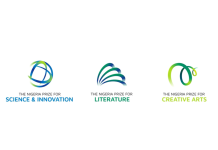The Nigeria Customs Service (NCS) and the National Agency for Food and Drug Administration and Control (NAFDAC) have signed a Memorandum of Understanding (MoU) aimed at combating the influx of illicit drugs and harmful products into Nigeria. This agreement is formalized during the Comptroller General of Customs (CGC) conference held in Abuja.
NCS Comptroller-General, Adewale Adeniyi, highlights that this MoU represents the outcome of years of strategic discussions and collaboration between the two agencies. He emphasizes that the partnership is a crucial response to the rising challenge of illicit pharmaceutical products in the country.
“This MoU addresses a significant problem we are facing,” Adeniyi states, explaining that the agreement focuses on enhanced cooperation, especially in the area of intelligence sharing between NCS and NAFDAC.
Adeniyi shares an example of the real-time intelligence exchange under the partnership, noting, “There are times when, in the middle of the night, NAFDAC’s Director-General sends critical intelligence about suspicious containers that may arrive in the morning. This timely information is essential for our joint operations.”
He further explains that recent inspections at one of Nigeria’s ports, which led to a state of emergency, reveal only a fraction of the illicit pharmaceutical products entering the country. Adeniyi calls for a concerted effort to put an end to the circulation of these dangerous items, urging, “It is time for all stakeholders to unite and declare that this is the start of a new era. We are committed to protecting Nigeria and securing the future of our children from these hazardous products.”
NAFDAC’s Commitment to Public Health and Safety
NAFDAC Director-General, Prof. Moji Adeyeye, describes the MoU as a vital step toward safeguarding the health and wellbeing of Nigerians. She stresses the importance of the collaboration, noting that the products regulated by NAFDAC, such as food and healthcare items, impact Nigerians daily.
“This partnership is about ensuring that the food, medicines, and healthcare products we consume are safe and meet the highest quality standards,” Prof. Adeyeye states.
She also addresses the broader security implications of unregulated products, highlighting that some approved chemicals can be misused by criminal elements. According to her, the agreement also aims to eliminate ghost companies that evade regulatory oversight.
“We have identified companies operating outside our regulatory framework. This MoU signifies the beginning of the end for such illicit practices,” Prof. Adeyeye affirms, underscoring the agency’s commitment to enhancing public safety and national security.













